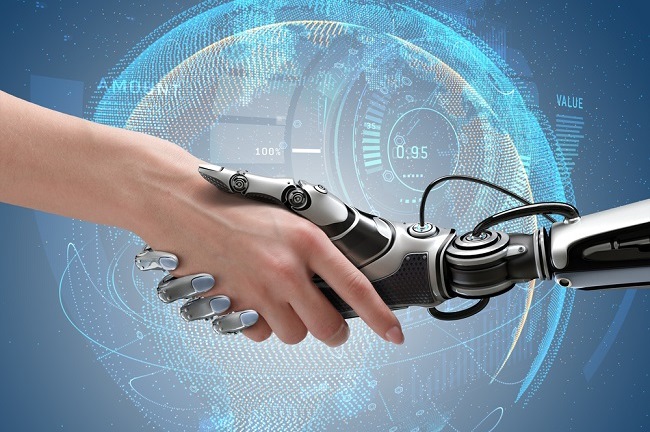If you’re a regular reader of tech news sites, the following headline should be irritatingly familiar: The robots are coming…AND THEY WANT YOUR JOB!
That’s not to say automation isn’t a legitimately worrisome prospect for some occupations…they just might not be the occupations you thought.
According to new research from consultancy firm McKinsey & Company, CEOs could be replaced by automation more easily than those in some of the lower-paying jobs more typically perceived as being at risk. Estimating that tasks taking up over 20% of a CEO’s time could be done using the current technology (see: analyzing company data, reading status reports), the study also names lucrative jobs in finance and medicine as better candidates for automation than landscapers, home health aides, and maintenance workers—among other lower-paid positions.
“Particularly in the highest-paid occupations, machines can augment human capabilities to a high degree, and amplify the value of expertise by increasing an individual’s work capacity and freeing the employee to focus on work of higher value,” the study reads.
That’s not to say that all lower-paying jobs are in the clear—service workers, retail sales people, and numerous others all perform tasks that could be automated. However, the researchers’ conclusions are surprisingly optimistic. After all, McKinsey’s statement reads, ATMs didn’t replace bank tellers. Rather, they redefined the tasks they focused on from one day to the next, and freed them up to use their time in other ways. If that narrative holds for other jobs shifting in the face of automation, we might look at it as less of a robot takeover and more as a kind of productive collaboration.
Some professionals may feel that way already. According to an international poll conducted by Monster earlier this year, 63% of workers believe their jobs are safe from automation. McKinsey’s research largely jibes with that sentiment, stating that fewer than 5% of occupations can be fully automated with the current technology.
However, a much higher number (60%) could have aspects of their jobs performed by machines—around 30% of them. But when a physician, for example, is spending less of his time performing diagnoses (which could be easily automated), that physician can instead fully dedicate himself to other, more urgent cases.
“Automation is likely to change the vast majority of occupations—at least to some degree—which will necessitate significant job redefinition and a transformation of business processes,” the study reads. “Mortgage-loan officers, for instance, will spend much less time inspecting and processing rote paperwork and more time reviewing exceptions, which will allow them to process more loans and spend more time advising clients.”
McKinsey’s research is still ongoing, and points out that it can’t accurately predict the rate at which automation technologies will develop, or whether machines will someday be able to perform tasks requiring innately human qualities like empathy and creativity. But it strikes a rare positive note amidst the generalized panic that defines the conversation about robots in the workplace, and should go a ways toward shifting the way we think about automation. Unless you’re a CEO, maybe.
This article was first published on Monster.com





